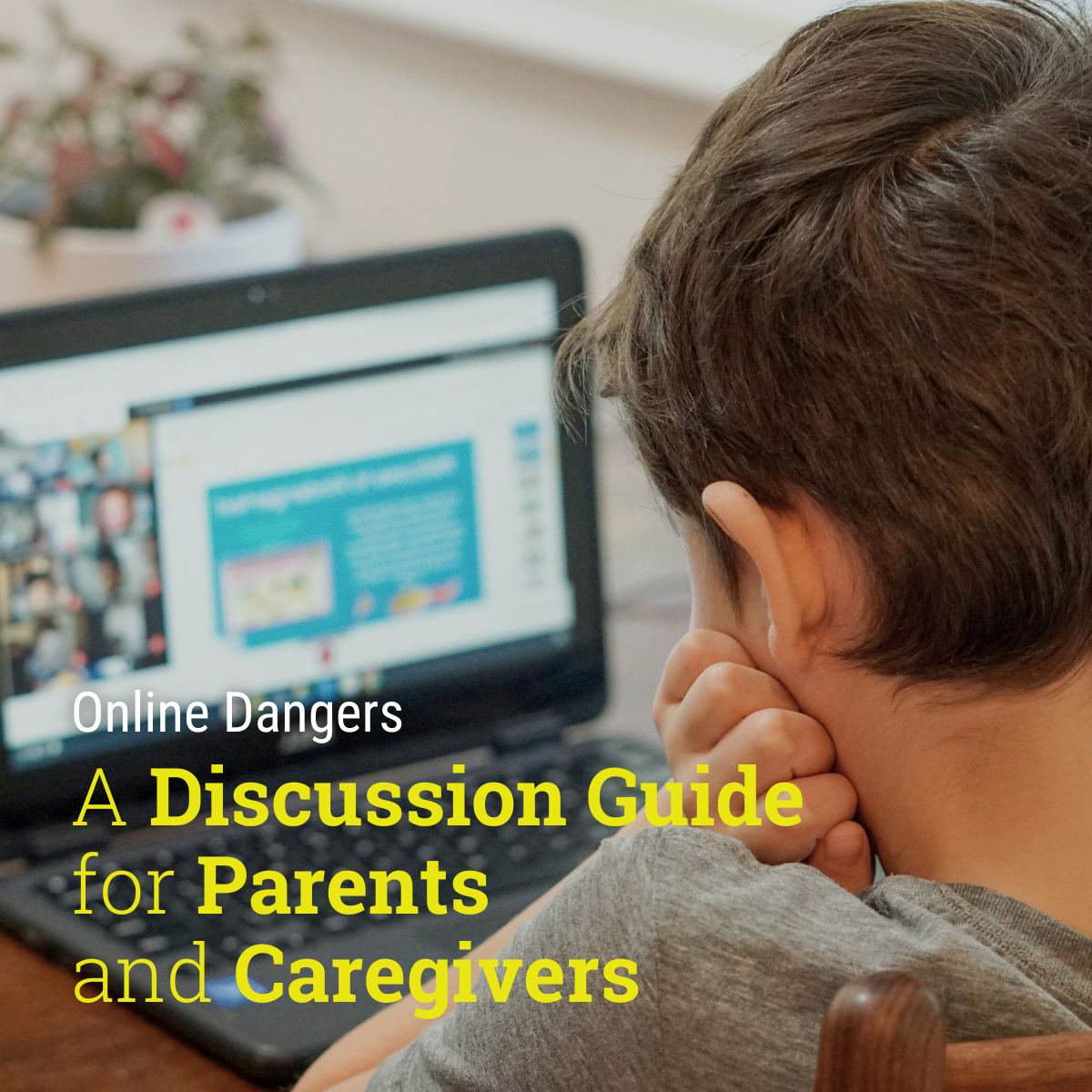
Online Child Sexual Exploitation : A Discussion Guide for Parents and Caregivers
Public Safety Canada has released a guide to help parents and caregivers talk with 12–14-year-olds about staying safe online.
This guide covers key topics, including:
- Having open conversations with youth;
- Sexual images and videos;
- Grooming;
- Cyberbullying.

Staying Safe : Protecting You and Your Research
Did you know that certain research topics — such as national security, geopolitics, extremism, or other politically sensitive issues — may expose scholars to risks that most academics never have to consider?
Thankfully, our partners at the Centre for Research and Evidence on Security Threats (CREST) have developed a concise, 5-minute guide to help you strengthen your defensive practices.

« Je vaux mieux que ça » : Une analyse qualitative des points tournants menant à la sortie de l’incelosphère
Dans le cadre d’un partenariat de recherche – abordant la question des incels – entre le RPC-PREV et le Laboratoire de recherche sur le développement sexuel de l’adolescent et du jeune adulte (DESAJ), l’infographie ci-dessus a été conçue afin de résumer certains résultats clés de la recherche. Plus précisément, cette étude vise à comprendre comment les incels qui ont quitté ou souhaitent quitter les écosystèmes incels (incelosphère) vivent ce processus.
*In French only

Navigating Traumatic Content in Media Coverage of Conflict / Faire face aux contenus traumatisants dans la couverture médiatique des conflits
In today's media landscape, the coverage of conflict and violence has a profound impact on viewers and communities. Our latest infographic, "Navigating Traumatic Content in Media Coverage of Conflict" highlights the ethical responsibilities of the media in reporting such events and the emotional implications for viewers. It is crucial to understand how continuous exposure to distressing content can lead to desensitisation, trauma accumulation, and emotional exhaustion.

Addressing Online Hate
The “Addressing Online Hate ” module developed by Project Someone and partner SERENE-RISC was launched on January 30th. This module was developed to enable libraries and community organizations to offer educational sessions and raise awareness about online hate.

Conflit au Moyen-Orient: Mitiger les impacts dans les écoles du Québec
[French only]
The violence taking place during recent events in the Middle East arouses feelings of horror, fear, sadness and anger not only among families and young people in communities involved nationally or religiously, but more broadly among all Quebecers. This situation can cause or fuel interpersonal and intercommunity tensions in schools. This short document from RAPS offers ways of understanding and taking action to support young people affected by the situation and to preserve a cohesive school climate.

CoVivre Program
The CoVivre program addresses the inequalities faced by marginalized groups through initiatives carried out with key players in the community, education and health and social services sectors. CoVivre acts as a facilitator and as an accelerator of initiatives aimed at reducing socio-economic and health disparities caused by the pandemic. More specifically, CoVivre aims to inform, protect and support marginalized communities during the COVID-19 pandemic in the Greater Montreal area.

Ecole Citoyenne
[English only]
“Ecole citoyenne” offers intercultural courses during which students can express themselves freely in class. Normally, the school has little time to work on multiple identities, also because teachers and educators do not know how to do it. For this reason, “école citoyenne” allows to know and recognize identities and thus create a common culture in line with the civic values of equality, freedom, emancipation and mutual aid. In their project files, the focus is on the possibility of opening up a space for discussion for the expression of identity. Concrete projects can be found on their website below.

Educate Against Hate – Resources
[English only]
Educate Against Hate put together over 80 different resources, trainings and other activities helping teachers, parents and guardians to talk about topics related to discrimination, extremism, online safety or radicalization with young people and children. Each tool is described by key-words and can be downloaded as a pdf, word document or a presentation or visualized in the form of a short video.

EMPOWER Surrey
[English only]
The City of Surrey’s Community Safety section launched a new website dedicated to helping parents, caregivers and other trusted adults build protective factors among Surrey children and youth to reduce their susceptibility for gang involvement.
Called Empower Surrey, the website aims to enhance the impact of the Surrey Anti-Gang Family Empowerment (SAFE) Program and is available in over 80 languages. It features information on Surrey’s unique gang landscape, how to identify and address risk factors, tips and tools to start early conversations with children and youth, and links to free prevention, intervention and enforcement programs available to Surrey residents.

Evaluation Guidebook: Landscape Of Hope
The Landscape of Hope project team has released a guidebook to evaluating art-driven and resilience-based initiatives like their own, based on criteria developed by the Anti-Racism Action Program (ARAP) that prioritize the voices of Indigenous, racialized, and religious minority communities.

Expo-quiz junior “Éveiller l’esprit critique, parlons-en!”
[French only]
This primary prevention tool intended for 9-12 year olds aims to help practitioners in education-related fields and youth workers to discuss the issues and risk factors leading to extreme behaviors that can eventually lead to certain forms of radicalization.

Extreme Dialogue
[English only]
Extreme Dialogue is a cutting-edge project designed to provide young people with the tools they need to challenge extremism in all its forms. Through a series of compelling films telling the true stories of those affected by extremism, with supporting educational resources, it provides a range of perspectives on how violence, exclusion and hate change lives. Designed to be delivered by teachers, other education or youth practitioners, external facilitators or young people themselves, the free Extreme Dialogue films and educational resources can be supported by training workshops.

Extremism, Radicalisation & Mental Health: Handbook For Practitioners
[English only]
This handbook is not meant to be used as a risk assessment methodology, nor does it seek to offer a quantitative measure of risk and vulnerability. It also does not seek to offer a position on the medico-legal implications of mental health contributors to extremism vulnerability/risk. Its sole purpose is to aid in qualitative assessments, formulation and intervention planning and it is designed to be used as an adjunct to the appropriate, existent risk-assessment methodologies, intervention and therapeutic approaches, and mental health and counter-extremism frameworks and processes.

Free Online Course on Cognitive Biases and Radicalization
The course includes a 12 hour program that you can take at your own pace. Through a diverse mix of videos, reading materials and quizzes, you will learn about the role of automatic thinking in radicalization processes and how extremist online content can trigger cognitive biases. The course provides key information on radicalization and links it with our brain information processing, to better understand the mental processes that take place when people are confronted with extremist propaganda on social media.

From Hate to Hope: Massive Open Online Course (MOOC)
In April of 2018, Global Affairs Canada awarded funding to the UNESCO-PREV Chair to create a massive open online course (MOOC) – titled “From Hate to Hope” that draws from cutting-edge research in multiple disciplines from humanities and social sciences to address strategies that build resilience against hate through the use of pluralistic dialogues. The resources showcased herein comprise of seven videos (each are available with English, French and Arabic subtitles) that were created as part of “From Hate to Hope” which feature the voices of experts in extremism, political science, psychology, religion, humanities, education, art-based pedagogies, sociology, media studies and computer science debating the multi-faceted nature of combating hate and designing effective primary prevention activities in scholastic as well as public spaces.

Guide comprendre pour mieux agir
[En français seulement]
“Le guide pédagogique Comprendre pour mieux agir, le présent guide poursuit deux objectifs. Dans un premier temps, il informe sur la radicalisation menant à la violence, notamment en sensibilisant le personnel scolaire aux multiples aspects du phénomène. Dans un deuxième temps, il présente les différents leviers qui existent en milieu scolaire pour promouvoir le vivre-ensemble, et suggère des pistes d’action et des outils. Ce guide donne donc au personnel scolaire les moyens d’aborder le sujet de la radicalisation à l’école.”

Comment traiter des sujets sensibles et de la radicalisation? Nouveau rapport du CEFIR
[Contenu en français seulement]
Le rapport de recherche Radicalisation, sujets sensibles et coconstructions des savoirs: une recension des écrits, détaille les différentes façons d’aborder des sujets sensibles, particulièrement la radicalisation violente, dans l’enseignement collégial. Ce rapport a été produit dans le cadre du projet de recherche et de prévention « L’extrême-droite au Québec : Acteurs, idéologies et prévention », par le CEFIR.

How to talk about sensitive topics with infants, children and youth?
[Some content only in French]
As part of an inter-ministerial collaboration, three brochures, accompanied by video clips, were created by clinicians and researchers at the SHERPA Research Centre to help parents discuss sensitive topics with their children. The Centre was called upon in particular because of its expertise on issues related to social polarizations. The kit can also be useful to practitioners or people who work with youth.
Talking about violence in the news with small children (Video Tools):

Les enjeux de la médiatisation des tueries de masse
[french only]
Cet outil vise à guider les professionnels des médias dans leur couverture des tueries de masse afin de contrôler l’impact de ce dernier.


